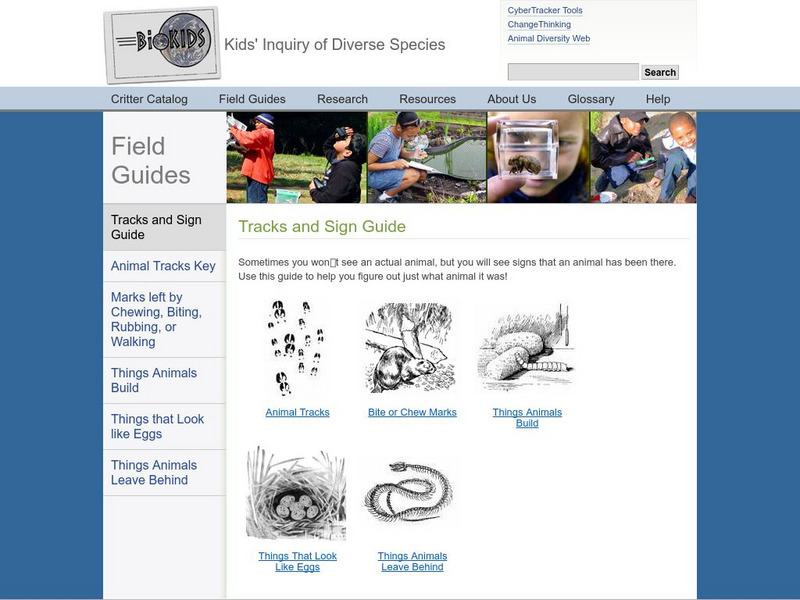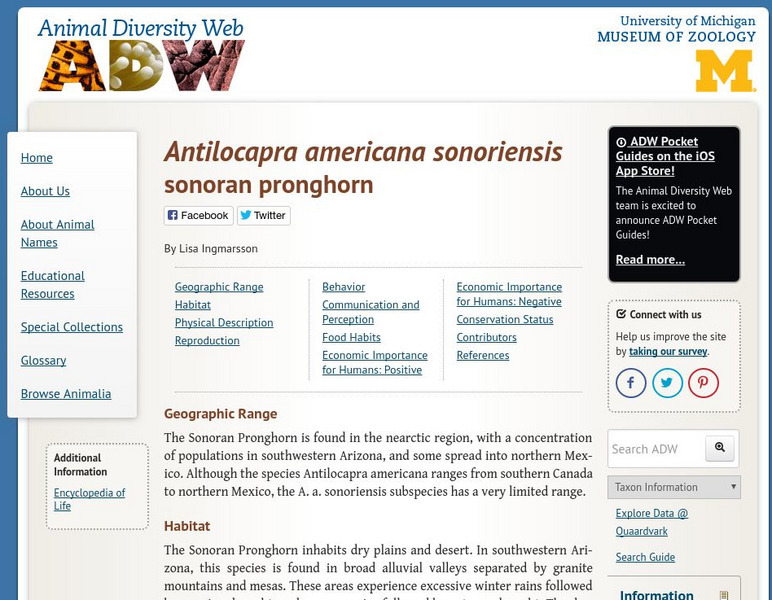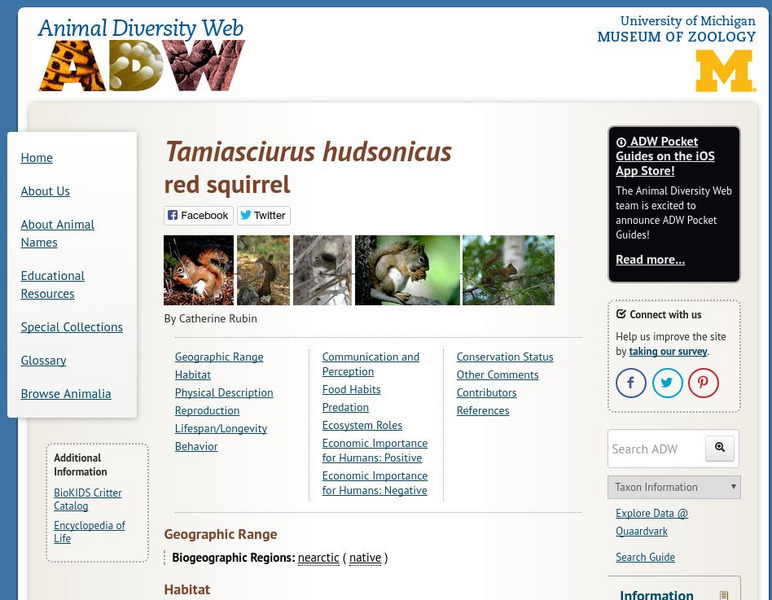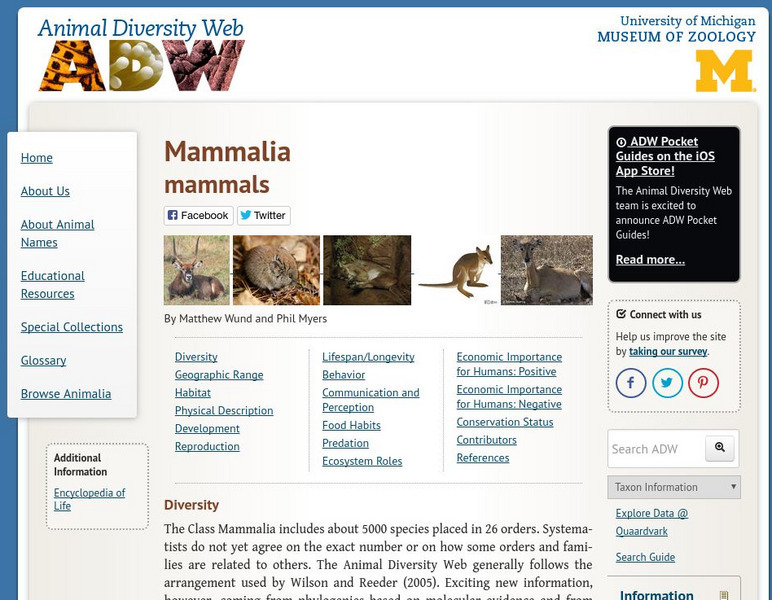Curated OER
Weather Versus Climate
Students differentiate weather and climate. In this earth science lesson, students investigate the climate of a zone they chose. They create a presentation and share their findings with the class.
Curated OER
Food and Fiber: Helping the Environment and You
Fourth graders explore the many uses of corn-based products and the importance of water resources. They consider how biodegradable products help to keep water clean. They perform experiments to observe how corn pellets dissolve while...
Curated OER
Gopher, Part 3: Subject Trees
Students explore the logic and organization of menus structured in gopherspace and to the links that connect gophers and resources. The lesson is designed for librarians with little or no net experience.
Curated OER
Which Way to Roots Grow?
Second graders explore roots and how they grow. They observe as seeds planted in various directions grow and record their observations. Students discuss the direction in which the roots are growing.
Curated OER
Fire and Fire Suppression
Students explore forest fires and forest service's new stategies. They study a case of natural burn and the impact of lowering the intensity of a larger forest fire.
Curated OER
Native Species Restoration and its Impact on Local Populations
Students watch video clips of ecosystems and answer questions relating to them.
Curated OER
Volcanoes: How Safe Are They?
Students explore the most dangerous volcanoes on Earth, plot their locations, and research different volcanic hazards.
Agriculture in the Classroom
National Agriculture in the Classroom: A Look at Michigan Agriculture [Pdf]
Learn about the agricultural industry in Michigan. Easy-to-read, bulleted facts on climate, soil, crops, and farm animals.
A&E Television
History.com: Michigan
Take a detailed look at the state of Michigan! From its earliest history and peoples, to present day facts which include population, climate, geography, plants and animals, economy, government, cultural life, sports and recreation,...
University of Michigan
University of Michigan Critter Catalog: Amphibians
This site provides a general description of amphibians and then describes in detail the characteristics of local animals in southern Michigan. Pictures, classification information, and sound clips of some amphibians are provided.
University of Michigan
University of Michigan: Animal Sign Guide
Use this guide to help you identify signs from different animals in the wilderness. Identify tracks, chew marks, signs from animals that build, eggs, and the like.
Michigan Reach Out
Reach Out! Michigan: Animal or Plant
This site provides a basic lesson plan from Reach Out! Michigan comparing plants to animals.
University of Michigan
University of Michigan: Animal Symbolism in Celtic Mythology
University-level student-authored work about the symbolism of animals in Celtic mythology.
Regents of the University of Michigan
Animal Diversity Web: Kingdom Animalia
What characterizes animals from plants? General characteristics of the animal kingdom are noted here. Click on Classification for the Kingdom Animalia; clicking on the camera provides pictures of each animal.
Regents of the University of Michigan
Animal Diversity Web: Antilocapra Americana Sonoriensis
This site provides a detailed overview of the Sonoran pronghorn. Content includes information on this animal's geographic range, physical characteristics, natural history, economic importance for humans, and current conservation efforts.
Regents of the University of Michigan
Animal Diversity Web: Northern Flying Squirrel
Comprehensive information about the northern flying squirrel is presented, including the impact these small animals have on humans. Included are some photographs of northern flying squirrels and detailed classification information.
Regents of the University of Michigan
Animal Diversity Web: Red Squirrel
Comprehensive information about the red squirrel is presented, including the positive and negative impacts of these small animals on humans. This page also includes excellent photographs of red squirrels and detailed classification...
Regents of the University of Michigan
Animal Diversity Web: Eastern Fox Squirrel
Comprehensive information about the Eastern fox squirrel is presented, including the positive and negative impacts of these small animals on humans. This page also includes excellent photographs of Eastern fox squirrels and detailed...
Regents of the University of Michigan
Animal Diversity Web: Lemmings and Voles
Lemmings and voles belong to the rodent subfamily Arvicolinae. Comprehensive information about these animals is presented, including the positive and negative economic impacts they have on humans. This page has excellent photographs of...
Regents of the University of Michigan
Animal Diversity Web: Deer Mouse
Comprehensive information about the deer mouse is presented, including the positive and negative economic impacts these small animals have on humans. This page includes excellent photographs of deer mice and detailed classification...
Regents of the University of Michigan
Animal Diversity Web: Cnidaria
This site by Animal Diversity Web discusses the different body types and the similar characteristics of the animals in the phylum Cnidaria.
Regents of the University of Michigan
Animal Diversity Web: Isoodon Marcrourus
This site provides a detailed overview of the Large Short-Nosed Bandicoot, also known as the the northern brown bandicoot. Content includes a focus on this animal's physical characteristics, geographic range, food habits, behavior,...
Regents of the University of Michigan
Animal Diversity Web: Mammalia
For an overview of the anatomy and characteristics of mammals, visit this Animal Diversity Website. Discusses characteristics not found in other animals, the function of their hair, and their production of milk.
Regents of the University of Michigan
Animal Diversity Web: Peromyscus Eremicus (Cactus Mouse)
The Animal Diversity Web describes the natural history of the cactus mouse, including its geographical range, physical characteristics, natural habitat, reproduction, and behavior.


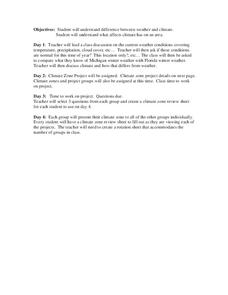






![National Agriculture in the Classroom: A Look at Michigan Agriculture [Pdf] Handout National Agriculture in the Classroom: A Look at Michigan Agriculture [Pdf] Handout](https://d15y2dacu3jp90.cloudfront.net/images/attachment_defaults/resource/large/FPO-knovation.png)


